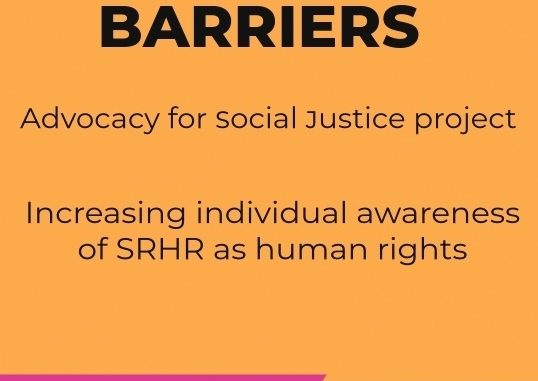
PRESS RELEASE: Statement on International Safe Abortion Day on 28 September 2023
LILONGWE, Malawi
28 September marks the annual International Safe Abortion Day. As Malawi joins the rest of the world in commemorating the day, it is important for the government to fulfill the commitment made in the National Postabortion Care Policy that ‘no woman should suffer or die from complications of abortion in Malawi.’
Despite making the commitment, the reality is that many women and girls continue to die from unsafe abortion.
Recent data from the Ministry of Health shows an upsurge of unsafe abortions in several districts in Malawi, as reflected in the number of women and girls seeking post-abortion care in health facilities.
In Blantyre, for instance, 665 women and girls in 2020 ended up in health facilities because of complications of unsafe abortions. The number in the district rose to 1,144 in 2021 and increased to 3,395 in 2022.
In Lilongwe, 1,098 women and girls sought treatment for unsafe abortion complications in 2020. The number rose to 4,711 in 2021, and according to the Ministry of Health data 7,851 women and girls sought postabortion care treatment in 2022. The pattern is the same in rural districts, such as Rumphi, where 327 women and girls accessed post-abortion care in 2020, and the number shot to 448 in 2021. The latest data shows 569 women and girls sought post abortion care in 2022.
The recent data is in tandem with past research findings by the College of Medicine and Guttmacher Institute that abortion is common in Malawi. The research findings indicated that over 141,000 abortions occurred in Malawi in 2015—at an annual rate of 38 abortions per 1,000 women of reproductive age.
Due to the current restrictive laws, most abortions in Malawi are performed under clandestine and unsafe conditions, and result in complications and deaths.
Considering the magnitude of unsafe abortion, we at the Coalition for the Prevention of Unsafe Abortion (COPUA), Malawi Human Rights Resource Centre (MHRRC), Centre for Human and Rehabilitation (CHRR), Centre for Solutions Journalism (CSJ) and Malawi Sexual and Reproductive Health and Rights Alliance (SRHR Alliance), urge the government to break all the barriers that prevent women from access comprehensive sexual and reproductive health, including access to abortion.
We back the Malawi Law Commission which in a ‘Report on the Review of the Law on Abortion’ resolved that “the law on abortion should be liberalised (that is conditional relaxation of the restrictions as contrasted with decriminalisation to cater for certain justifiable instances where termination of pregnancy should be permissible.”
It has been almost six years since the Special Law Commission finalized the review of Laws on Abortion in Malawi and presented their recommendations to the Government of Malawi, including the Termination of Pregnancy (TOP) Bill. The bill proposes scaling up the grounds for accessing safe, medical abortion from one to four as follows:
- The continued pregnancy would endanger the life of the pregnant woman.
- To prevent injury to the physical and mental health of the pregnant woman.
- There is a severe malformation of the foetus so that it cannot survive after birth.
- The pregnancy is a result of rape, incest or defilement.
However, the delay by Government to present the TOP bill to Parliament remains a setback and raises several questions, especially when ‘Leaving No One Behind’ and ‘Gender Equality’ are key themes spearheading the global 2030 development agenda. Furthermore, Malawi, as a signatory to several regional and global commitments on promoting women rights, including the Maputo Plan of Action and SADC protocol on gender and development needs to walk the talk on its obligations.
We acknowledge the diverse opinions about the extent to which safe abortion should be allowed by law. We remind our MPs that Parliament is the only institution constitutionally mandated to make laws, including those that appear complex. It is deeply concerning, disappointing and a betrayal of trust that Parliament has abandoned its constitutional duty by letting the report and the proposed Termination of Pregnancy (T.O.P) gather dust when women and girls continue to die from unsafe abortions.
We wish to remind MPs that their primary role as an arm of government responsible for making and passing laws is to protect citizens. Women and girls are no exception, and it is undisputable that unsafe abortions largely affect poor and vulnerable women from different constituencies across the country under the MPs watch.
As we celebrate this day, we must realise that universal access to safe and legal abortion is an essential health care and a human right.
We urge:
- The Ministry of Health, in consultation with the Ministry of Justice, to table the Termination of Pregnancy Bill in the forthcoming sitting of Parliament. The enactment of this law would create a conducive environment for access to safe abortion.
- The Ministry of Health to continue providing contraceptives, comprehensive abortion and post-abortion care services to reduce maternal mortality in fulfilment of Sustainable Development Goals.
- Women and girls to demand their right to access all health services and procedures, including access to contraceptives, abortion and post abortion care as is provided in the National SRHR Policy, Post Abortion Care Policy and Gender Equality Act.
Issued by
Emma Kaliya, Chairperson
- Coalition for the Prevention of Unsafe Abortion (COPUA)
- Malawi Human Rights Resource Centre (MHRRC) Executive Director
Email: info@humanrights.mw
******
Michael Kaiyatsa- – Executive Director
Centre for Human Rights and Rehabilitation (CHRR)
Email: chrr@chrrmw.org
******
Hastings Saka – – Executive Director
Malawi Sexual and Reproductive Health and Rights Alliance (Malawi SRHR Alliance)
Email: info@srhralliancemalawi.org
******
Brian Ligomeka– Executive Director
Centre for Solutions Journalism (CSJ)
Email: editor794@gmail.com
*****
